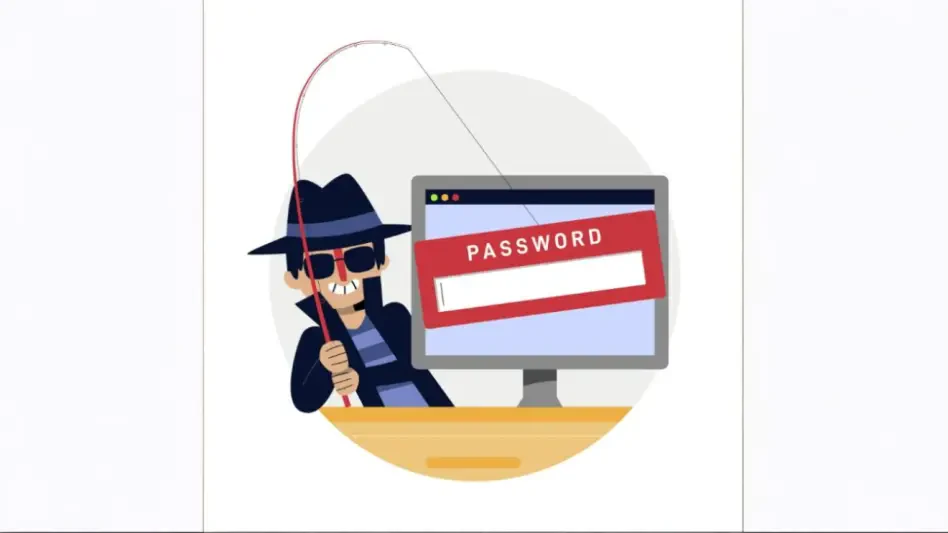In recent developments, Polish organizations have become targets of a sophisticated spear phishing campaign exploiting a critical vulnerability in Roundcube webmail systems. Identified as CVE-2024-42009, this flaw allows malicious actors to execute arbitrary JavaScript simply by having users open crafted email messages. The core issue lies in the inadequate HTML sanitization within the platform, which fails to strip away perilous elements capable of executing harmful scripts. This attack marks the first known exploitation of this vulnerability, drawing urgent attention to the potential impacts on the security of email communications.
The threat actors behind this campaign are linked to the UNC1151 group, known for its associations with Belarusian government operations and possibly Russian intelligence initiatives. Their tactics involve a two-stage JavaScript payload delivery method. This method employs CSS animation within the HTML structure of the email to surreptitiously register a Service Worker in the victim’s browser. These Service Workers are designed to run background JavaScript, enabling the interception of network requests to harvest user credentials without disrupting normal authentication workflows. By disguising these communications as legitimate business correspondence, the attackers effectively employ social engineering techniques to enhance the believability of their phishing attempts.
Exploitation Techniques and Vectors
The spear phishing campaign displays a high level of sophistication, with the attackers using themes that mimic legitimate business interactions. Urgent invoice-related messages, complete with subjects pressuring immediate action, are crafted to entice user interaction. These emails expertly impersonate real business exchanges, specifically targeting Polish entities by requesting invoice processing for actions such as travel reservations. By personalizing and meticulously crafting these messages, the attackers significantly increase their chances of success.
These spear phishing emails are not merely persuasive; they are bolstered by technical exploitation methods. At the heart of these attacks lies the flaw in Roundcube’s HTML processing engine that permits the execution of arbitrary JavaScript. This vulnerability provides an entry point for the attackers to inject harmful scripts unnoticed. Moreover, the choice of Roundcube as a target is strategic, given its widespread usage in various organizations for managing email resources. The exploitation of this vulnerability underscores a broader pattern of targeting email communications, which remain an integral part of organizational operations globally.
Implications of Recent Vulnerabilities
In addition to the exploited CVE-2024-42009, another vulnerability, CVE-2025-49113, has been identified. Though not yet exploited in the wild, it underscores the ongoing risk surrounding webmail platforms. This newer vulnerability could allow authenticated attackers to execute code and take over entire webmail servers if linked with credential harvesting, potentially forming destructive attack chains. Organizations currently dependent on Roundcube’s infrastructure face significant risks if these flaws are not addressed swiftly.
The evolving nature of such cyber threats highlights the necessity for prompt action. To safeguard against these vulnerabilities, organizations using Roundcube should prioritize installing the latest software updates. Furthermore, unregistering installed Service Workers through browser developer tools is crucial to prevent credential theft. Regular password updates and vigilant account activity reviews are also recommended for affected users. By adopting these defensive measures, companies can reduce their susceptibility to similar attacks, ensuring the protection of critical communication infrastructure.
Strategic Defense Against Threats
Polish organizations currently face a sophisticated spear phishing campaign targeting a critical flaw in the Roundcube webmail system, identified as CVE-2024-42009. This vulnerability is exploited by attackers who can run arbitrary JavaScript code when users open specially crafted emails. The root problem is inadequate HTML sanitization within Roundcube, failing to filter out harmful elements capable of running malicious scripts. This attack is the first known use of this specific vulnerability, raising immediate concerns about its impact on email security.
The campaign’s perpetrators are linked to UNC1151, a group associated with Belarusian government activities and possibly Russian intelligence. Their strategy deploys a two-stage JavaScript payload, utilizing CSS animations within the email’s HTML to install a Service Worker in the browser. These Service Workers run background JavaScript, intercepting network requests to steal user credentials without disrupting regular login processes. By masquerading as legitimate business emails, the attackers use social engineering to make their phishing attempts more believable and effective.








